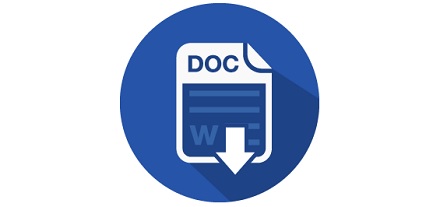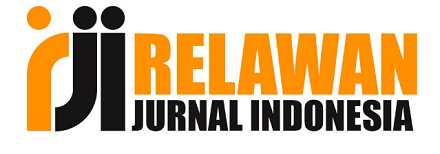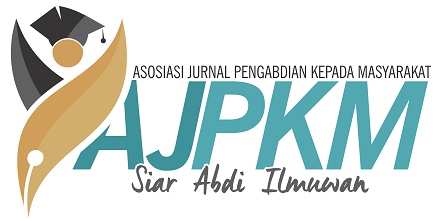Literasi bank sampah dan asuransi sampah sebagai upaya peningkatan kesejahteraan masyarakat
DOI:
https://doi.org/10.33474/jipemas.v4i1.9140Keywords:
waste bank, waste insurance, waste, zero-wasteAbstract
Indonesia is the second largest contributor to plastic waste after China. Despite the regulation, waste management in Indonesia has not met the standards of waste management that are environmentally sound. This forfeits the benefits of the waste management itself and brings negative impacts on public health and environment. This condition is aggravated by the costly access towards health facility. For this reason, socialization regarding waste management is needed. In addition, this program is equipped with an introduction towards waste bank and waste insurance as a practical solution. The existence of both options are expected to solve the problem of waste and health services for the community. The program aimed to help residents of RW 014 Kelurahan Tulusrejo, Malang City to comprehend the types of waste, separation of waste by category, impact on health, recycling and other details. The meetings were carried out twice from March to October 2020. The result of the agenda is that the residents continue to process waste using composter and are expected to form an independent waste bank management for local residents. Further, they are encouraged to learn more about waste insurance to manage the local waste in a more environment friendly manner.
References
Badan Penelitian dan Pengembangan Kesehatan Kementerian Kesehatan Republik Indonesia. (2013). Riset Kesehatan Dasar.
Cervantes-Reyes, A., Núñez-Pineda, A., Barrera-DÃaz, C., Varela-Guerrero, V., MartÃnez-Barrera, G., & Cuevas-Yañez, E. (2015). Solvent effect in the polyethylene recovery from multilayer postconsumer aseptic packaging. Waste Management, 38(1), 61–64. https://doi.org/10.1016/j.wasman.2015.01.034
CNN. (n.d.). LIPI Tegaskan Bogor Bukan Penyebab Banjir Jakarta. Retrieved January 8, 2020, from https://www.cnnindonesia.com/teknologi/20200107180309-199-463264/lipi-tegaskan-bogor-bukan-penyebab-banjir-jakarta
Dobrovszky, K. (2018). Temperature dependent separation of immiscible polymer blend in a melted state. Waste Management, 77, 364–372. https://doi.org/10.1016/j.wasman.2018.04.021
Garofalo, E., Di Maio, L., Scarfato, P., Di Gregorio, F., & Incarnato, L. (2018). Reactive compatibilization and melt compounding with nanosilicates of post-consumer flexible plastic packagings. Polymer Degradation and Stability, 152, 52–63. https://doi.org/10.1016/j.polymdegradstab.2018.03.019
Horodytska, O., Valdés, F. J., & Fullana, A. (2018). Plastic flexible films waste management – A state of art review. Waste Management, 77, 413–425. https://doi.org/10.1016/j.wasman.2018.04.023
Indonesian Center for Environmental Law (ICEL). (2019). Implementasi Undang-undang Pengelolaan Sampah.
Kompas. (n.d.). Penjelasan Lengkap Penyebab Banjir Jakarta, Ekstrem hingga Sejarahnya. Retrieved January 8, 2020, from https://www.kompas.com/tren/read/2020/01/03/092500065/penjelasanlengkappenyebabbanjirjakartacurahhuja-terekstremhingga?page=all
Kumparan. (n.d.). Tangani Masalah Sampah, Kota Malang Butuh Rp 90 Miliar Pertahun.
Peraturan Pemerintah Republik Indonesia Nomor 81 tahun 2012 Tentang Pengelolaan Sampah Rumah Tangga dan Sampah Sejenis Sampah Rumah Tangga.
Principato, L., Pratesi, C. A., & Secondi, L. (2018). Towards Zero Waste: an Exploratory Study on Restaurant managers. International Journal of Hospitality Management, 74(January), 130–137. https://doi.org/10.1016/j.ijhm.2018.02.022
Sahimaa, O., Mattinen, M. K., Koskela, S., Salo, M., Sorvari, J., Myllymaa, T., … Seppälä, J. (2017). Towards zero climate emissions, zero waste, and one planet living — Testing the applicability of three indicators in Finnish cities. Sustainable Production and Consumption, 10(February), 121–132. https://doi.org/10.1016/j.spc.2017.02.004
Sharma, D. K., Bapat, S., Brandes, W. F., Rice, E., & Castaldi, M. J. (2019). Technical Feasibility of Zero Waste for Paper and Plastic Wastes. Waste and Biomass Valorization, 10(5), 1355–1363. https://doi.org/10.1007/s12649-017-0109-5
Sudibyo, H., Pradana, Y. S., Budiman, A., & Budhijanto, W. (2017). Municipal Solid Waste Management in Indonesia - A Study about Selection of Proper Solid Waste Reduction Method in D.I. Yogyakarta Province. Energy Procedia, 143, 494–499. https://doi.org/10.1016/j.egypro.2017.12.716
Tempo. (2019). Menteri Susi Malu RI Penyumbang Sampah Plastik Terbesar Kedua di Dunia.
Undang-undang Republik Indonesia Nomor 18 Tahun 2008 Tentang Pengelolaan Sampah.
Wardhani, D. (2019). Belajar Zero Waste: Menuju Rumah Minim Sampah. Jakarta: Bentala Karya.
Zaman, A. U. (2015). A comprehensive review of the development of zero waste management: Lessons learned and guidelines. Journal of Cleaner Production, 91, 12–25. https://doi.org/10.1016/j.jclepro.2014.12.013
Zaman, A. U., & Lehmann, S. (2013). The zero waste index: A performance measurement tool for waste management systems in a “zero waste city.†Journal of Cleaner Production, 50, 123–132. https://doi.org/10.1016/j.jclepro.2012.11.041
Downloads
Published
How to Cite
Issue
Section
License
.









